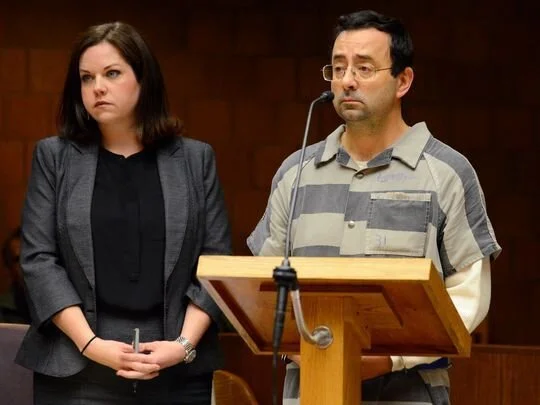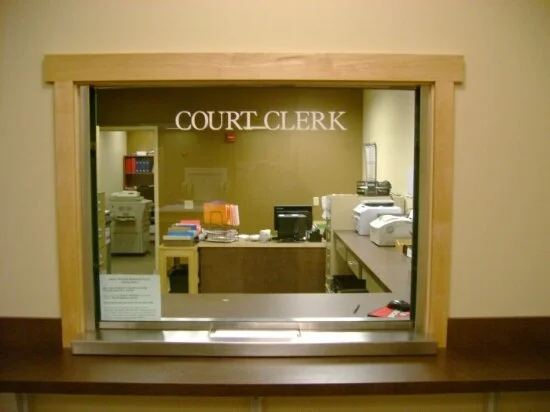Right to post–conviction counsel and correcting court’s mistake
GUILLERMO RENTERIA-NOVOA VS. STATE OF NEVADA
(Supreme Court Published Opinion order reversing and remanding)
Defendant Renteria was convicted of 36 felony sexual offenses and sentenced to life in prison with the possibility of parole after 85 years. Following the conviction, Mr. Renteria filed a timely pro se post-conviction petition for a writ of habeas corpus and requested counsel be appointed.
Post-conviction counsel is assigned on a discretionary basis by the District Court. In this case, the district court declined appointing post-conviction counsel because the defendant was not present during the hearing. The State incorrectly claimed that before a defendant can be appointed counsel, they must show that their claim is not “frivolous." The State was referring to case law which was overturned by repealed law in 1993. NRS 117.345(2) (1969) was repealed when the legislature changed the standard to a set of discretionary factors, none of which included the word “frivolous.”
The Defendant appealed that decision. The Supreme Court found the lower court erred as it had already been determined defendant was indigent, had a limited understanding of the law and the English language.
LINDA RAE COONEY VS. STATE OF NEVADA
(Supreme Court Unpublished order reversing and remanding)
Pursuant to a jury verdict of attempted murder with the use of a deadly weapon, battery with use of a deadly weapon resulting in substantial bodily harm constituting domestic violence, bribing/intimidating a witness to influence testimony, and stalking utilizing the Internet or network site, electronic mail, text messaging or other similar means of communication. Appellant Cooney argues that the District Court committed a reversible error by allowing the State to admit a 1992 shooting case as evidence during trial.
In this current case (2011), Ms. Cooney shot her son, Kevin, in the neck at their residence. After shooting her son, she called her other son, Chris. They engaged in a 16 minute conversation over telephone. After this conversation, Ms. Cooney called the paramedics.
At trial, the State was allowed to refer to and bring in as prior act evidence a case from 1992. Ms. Cooney had shot and killed her ex-husband, but she was ultimately acquitted of all charges. The District Court allowed the case to be admitted as evidence during trial because the State used the 1992 case to demonstrate that Ms. Cooney was familiar with firearms, had previously discharged a firearm against another human being, and to establish a reasonable basis for Kevin’s girlfriend (the victim of the stalking charge), to fear Ms. Cooney at the time of the second shooting.
On appeal, the Supreme Court found that the lower court abused its discretion in allowing the 1992 shooting case in trial because the probative value of the 1992 case did not substantially outweigh the danger of unfair prejudice. The Supreme Court argues that the State could have demonstrated in other methods that the appellant was familiar with firearms without informing the jury that the appellant had shot and killed her ex-husband.
The Supreme Court also ruled that the evidence of the 1992 shooting case was unquestionably and unfairly prejudicial in Ms. Cooney’s current case. The inclusion of the 1992 case does nothing more than to emphasize the Appellant’s bad character and predisposition to commit violence, which may have invariably influenced the decision of the jury. The Supreme Court reversed and remanded the issue and allowed Ms. Cooney to hold another trial.
EDWARD SETH TRZASKA VS. CLERK OF 8TH JUDICIAL DIST. CT. AND STATE OF NEVADA
(Supreme Court Unpublished order granting petition)
Seeking a writ of mandamus directing the district court clerk to file the petitioner's pro se motion to modify/correct an illegal sentence. There was confusion at the court about what should happen with these documents. Appellant Trzaska was in possession of a legal representative to assist him in a pending post-conviction habeas proceeding. On an unrelated issue, Trzaska filed a pro se motion to correct an illegal sentence. Instead of filing this motion with the court, the court clerk sent the document to the petitioners’ appointed attorney for post-conviction habeas proceedings. The motion was dismissed for being a fugitive filing.
The State argued a motion to modify an illegal sentence was ‘properly dismissed as a fugitive document’ as he had a representative for all post-conviction proceedings, not just for post-conviction habeas proceedings. However, the motion to correct an illegal sentence was found by the Court to be a separate issue from the post-conviction petition for a writ of habeas corpus. The Court ruled that the documents at issue had nothing to do with the post-conviction habeas proceedings, and thus the lower court clerk failed in not filing them and was wrong by instead forwarding these unrelated documents to his post-conviction attorney. The Court grants Trzaska's petition to correct his illegal sentence.



